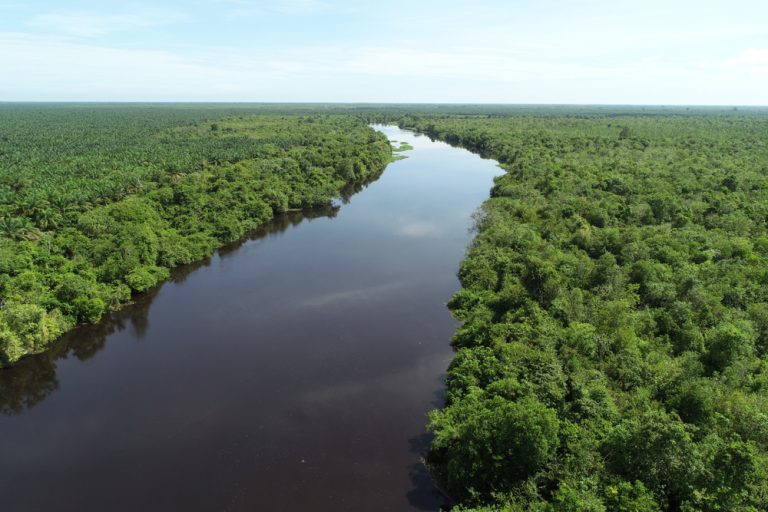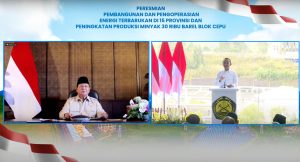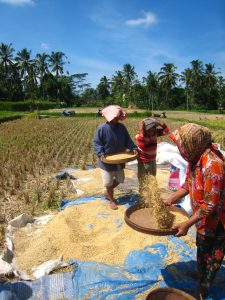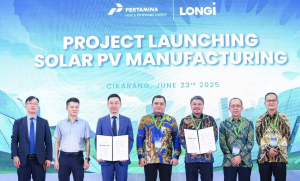by: Rifqi Mikala
The existence of indigenous peoples and their local wisdom can be a model for modern society, taking into account the environment and equality as an important component of long-term development. Many countries in the world began to implement protection of the rights of indigenous peoples through multilateral approaches with the aim of producing international agreements that pay more attention to the rights of indigenous peoples.
World bodies, in particular the United Nations Development Program (UNDP), the United Nations agency for global development, have played an active role since 1974 to facilitate the movement and protect the interests of indigenous peoples through various policies and organisational infrastructure.
Although there is always hope that various countries in the world can implement the concept of multilateral policies for the protection of the rights of indigenous peoples, looking at current developments, the protection of the rights of indigenous peoples throughout the world is still limited to regulations with soft sanctions or easily softened. This is the big challenge.
In the diplomatic process of indigenous peoples’ rights, more binding international laws and regulations are needed. Especially in developing countries whose economies are still dependent on developed countries, recognition of the rights of indigenous peoples is still difficult to obtain. Political imbalances and overlapping policies and interests in many developing countries occur due to the demand for developed countries for the supply of natural resources that many developing countries have. The economic benefits obtained are very disproportionate to the natural damage caused.
The importance of advocacy for indigenous peoples
The dependence of indigenous peoples on nature and their wisdom has the potential to become role models for sustainable development. Many studies reveal that the knowledge of indigenous peoples can limit changes in ecosystems that are often destroyed by the exploitation of natural resources.
Unfortunately most of the customary territories have been taken over and damaged by business and political interests. The lack of knowledge of indigenous peoples’ political diplomacy makes them very disadvantaged. Although there have been efforts to resolve conflicts between indigenous peoples and the government, these have often not been carried out through strategic diplomacy.
In order for the political path to run effectively, knowledge, training, education and advocacy representatives are needed that are more pro-indigenous to indigenous peoples. Fortunately, more and more people from indigenous backgrounds are becoming involved in various UN organizations. Thus, their fighting strategy becomes more organic.
UN-built advocacy body
In the advocacy and protection efforts of indigenous peoples, the two most important bodies discussed and approved by the United Nations are the Expert Mechanism on the rights of Indigenous Peoples (EMRIP), and to negotiate the interests of indigenous peoples within the country a Special Rapporteur on the Rights of Indigenous people.
EMRIP facilitates multi-stakeholder dialogue, involving parties with expertise in providing legal advice as well as diplomatic representation for indigenous peoples. The interests of a country’s political scope are included in negotiations relating to the life interests of indigenous peoples and the interests of the state.
The Special Rapporteur on the Rights of Indigenous people is a United Nations human rights body that promotes the rights of indigenous peoples. Through this organ, independent and dedicated legal experts are deployed for the interests of indigenous peoples.
Legal experts receive mandates or instructions from the state government to analyse and evaluate matters that are the aspirations and interests of indigenous peoples’ lives. Furthermore, the experts will provide advice and recommendations to the government and formulate solutions for the parties.
Empowering Indonesian indigenous people
Indonesia does not escape the challenge of empowering indigenous peoples. Indonesia is one of the countries with the largest indigenous population in the world, based on data from the Indigenous Peoples Alliance of the Archipelago (AMAN), it is estimated that the indigenous peoples of Indonesia reach 2,371 indigenous communities with a total population of around 70 million people.
The Indonesian government and civil society organisations continue to develop policies to protect indigenous peoples. The Constitutional Court’s decision number 35 of 2012 (MK 35) on customary forests has mandated that the forest area where indigenous peoples live and carry out their activities is no longer categorised as state forest, but becomes part of the ulayat or land belonging to the indigenous peoples.
Policy challenges
Unfortunately, even though it has been ratified, the implementation of the 2012 Constitutional Court 35 is not that simple. There are many political aspects tied to the decision. Great efforts are needed to harmonise MK 35 with other policy regulations.
The protection of indigenous peoples needs to be strengthened with a law. The draft law on indigenous peoples has been discussed since 2009 and included in the national legislation program since 2017, but has not yet been promulgated. In fact, 70 million Indonesian indigenous people who live on the forest fringes depend on the sustainability of nature and local culture, including the sustainability of the vast natural forests as Indonesia’s development assets and the construction of mitigation and adaptation to global climate change.
The involvement of indigenous peoples in the United Nations is imperative in order to create networked interactions between the general public and indigenous peoples. The intensity of participation on the part of indigenous peoples greatly influences the passage of clear government regulations.
It is time that the Indonesian Government has a special agency that is fully dedicated to promoting the interests of indigenous peoples. To support various government regulations and policies, it is necessary to create a body consisting of legal experts who are in favour of indigenous peoples, in particular formulating aspirations and joint solutions.
Furthermore, there is a need for a representative of indigenous peoples to learn about advocacy in Indonesia which is funded by the government. It is very important that indigenous peoples also know very well how their lives are viewed from the perspective of the laws that apply in the countries where they live. Paralegal programs carried out by various legal aid agencies are very important.
It is in the main interest of the state to be just to indigenous peoples. After all, indigenous peoples are an integral element in the journey towards sustainable development.













